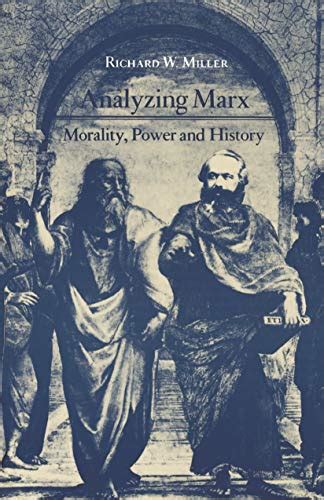richard miller redemptive power | Analyzing Marx: Morality, Power and History richard miller redemptive power Richard Miller begins "Marx and Morality" with a striking paradox: Marx is, "in a very broad sense," a "moralist"—some times, indeed, "a stern one;" but Marx is also an antimoralist who "attacks . Check out our louis vuitton makeup bag selection for the very best in unique or custom, handmade pieces from our purse inserts shops.
0 · [Review Essay: Richard W. Miller, Globalizing Justice: The
1 · Richard W. Miller, Analyzing Marx: Morality, Power and History
2 · Richard W. Miller
3 · RICHARD W. MILLER Beneficence, Duty
4 · Political philosopher Richard Miller dies at 77
5 · MARX AND MORALITY: A REPLY TO RICHARD MILLER
6 · Everybody is Working
7 · Analyzing Marx: Morality, Power and History
8 · Analyzing Marx : Morality, Power, and History
9 · Analyzing Marx
Here's a bit of a different way to farm Mako. Because we are using a umi based deck as well. Mako will not use his umi unless he has enough attack power to b.
Richard Miller begins "Marx and Morality" with a striking paradox: Marx is, "in a very broad sense," a "moralist"—some times, indeed, "a stern one;" but Marx is also an antimoralist who "attacks .

his practice as historian and activist, Richard W. Miller derives important arguments about the rational basis of morality, the nature of power, and the logic of testing and explanation. The .The Principle of Sacrifice. If it is in our power to prevent something very bad from happening, without thereby sacrificing anything else morally significant, we ought, morally, to do so.' .
Using the techniques of analytic philosophy to unite Marx's general statements with his practice as historian and activist, Richard W. Miller derives important arguments about the rational basis.
Richard W. Miller, Analyzing Marx: Morality, Power and History, Princeton: Princeton University Press 1984. Pp. xii + 319. Published online by Cambridge University Press: 01 January 2020 Using the techniques of analytic philosophy to unite Marx's general statements with his practice as historian and activist, Richard W. Miller derives important arguments about the .Richard Miller's Globalizing Justice: The Ethics of Poverty and Power (hereafter "GJ") is a significant and distinctive contribution to the con temporary philosophical debate on global justice.
Richard W. Miller is professor of philosophy at Cornell University. His writings in political philosophy, ethics, and the philosophy of social science include Globalizing Justice: The Ethics . Richard William “Dick” Miller, the Wyn and William Y. Hutchinson Professor in Ethics and Public Life Emeritus in the College of Arts and Sciences, who brought deep moral .If books do not have the redemptive power we thought, how can we keep doing our jobs as teachers of writing? What can sustain us through the demanding routines of teaching, semester after semester? Miller’s response to these questions comes through the form of the book itself, the “institutional autobiography.”
Richard Miller begins "Marx and Morality" with a striking paradox: Marx is, "in a very broad sense," a "moralist"—some times, indeed, "a stern one;" but Marx is also an antimoralist who "attacks morality and fundamental moral notions," even complaining .his practice as historian and activist, Richard W. Miller derives important arguments about the rational basis of morality, the nature of power, and the logic of testing and explanation. The book also makes Marx’s theory of change useful for current social science, by replacing economic determinist readings with a newThe Principle of Sacrifice. If it is in our power to prevent something very bad from happening, without thereby sacrificing anything else morally significant, we ought, morally, to do so.' Combined with further, uncontroversial premises, this principle leads to a demanding imperative to give which I will call the radical conclusion:Using the techniques of analytic philosophy to unite Marx's general statements with his practice as historian and activist, Richard W. Miller derives important arguments about the rational basis.
Richard W. Miller, Analyzing Marx: Morality, Power and History, Princeton: Princeton University Press 1984. Pp. xii + 319. Published online by Cambridge University Press: 01 January 2020 Using the techniques of analytic philosophy to unite Marx's general statements with his practice as historian and activist, Richard W. Miller derives important arguments about the rational basis of morality, the nature of power, and the logic of testing and explanation.
[Review Essay: Richard W. Miller, Globalizing Justice: The
Richard Miller's Globalizing Justice: The Ethics of Poverty and Power (hereafter "GJ") is a significant and distinctive contribution to the con temporary philosophical debate on global justice.Richard W. Miller is professor of philosophy at Cornell University. His writings in political philosophy, ethics, and the philosophy of social science include Globalizing Justice: The Ethics of Poverty and Power (2010), Moral Differences: Truth, Justice and Conscience in a World of Conflict (1992), Fact and Method: Explanation, Confirmation and . Richard William “Dick” Miller, the Wyn and William Y. Hutchinson Professor in Ethics and Public Life Emeritus in the College of Arts and Sciences, who brought deep moral insight to philosophical theory and matters of social and political justice, died June 9. He was 77.If books do not have the redemptive power we thought, how can we keep doing our jobs as teachers of writing? What can sustain us through the demanding routines of teaching, semester after semester? Miller’s response to these questions comes through the form of the book itself, the “institutional autobiography.”
chanel flap suede 2014
Richard Miller begins "Marx and Morality" with a striking paradox: Marx is, "in a very broad sense," a "moralist"—some times, indeed, "a stern one;" but Marx is also an antimoralist who "attacks morality and fundamental moral notions," even complaining .his practice as historian and activist, Richard W. Miller derives important arguments about the rational basis of morality, the nature of power, and the logic of testing and explanation. The book also makes Marx’s theory of change useful for current social science, by replacing economic determinist readings with a new
The Principle of Sacrifice. If it is in our power to prevent something very bad from happening, without thereby sacrificing anything else morally significant, we ought, morally, to do so.' Combined with further, uncontroversial premises, this principle leads to a demanding imperative to give which I will call the radical conclusion:
chanel classic flap sizes 2020
Richard W. Miller, Analyzing Marx: Morality, Power and History
Using the techniques of analytic philosophy to unite Marx's general statements with his practice as historian and activist, Richard W. Miller derives important arguments about the rational basis.Richard W. Miller, Analyzing Marx: Morality, Power and History, Princeton: Princeton University Press 1984. Pp. xii + 319. Published online by Cambridge University Press: 01 January 2020 Using the techniques of analytic philosophy to unite Marx's general statements with his practice as historian and activist, Richard W. Miller derives important arguments about the rational basis of morality, the nature of power, and the logic of testing and explanation.

Richard Miller's Globalizing Justice: The Ethics of Poverty and Power (hereafter "GJ") is a significant and distinctive contribution to the con temporary philosophical debate on global justice.
Richard W. Miller is professor of philosophy at Cornell University. His writings in political philosophy, ethics, and the philosophy of social science include Globalizing Justice: The Ethics of Poverty and Power (2010), Moral Differences: Truth, Justice and Conscience in a World of Conflict (1992), Fact and Method: Explanation, Confirmation and .
Richard W. Miller

Effective January 1, 2021, Carlisle will discontinue its FAST 100 LV Dual Tanks. Until then, stocking locations and availability will vary as inventory levels diminish. Flexible FAST Dual Tank Adhesive will serve as the replacement for FAST 100 LV Dual Tanks.
richard miller redemptive power|Analyzing Marx: Morality, Power and History



























